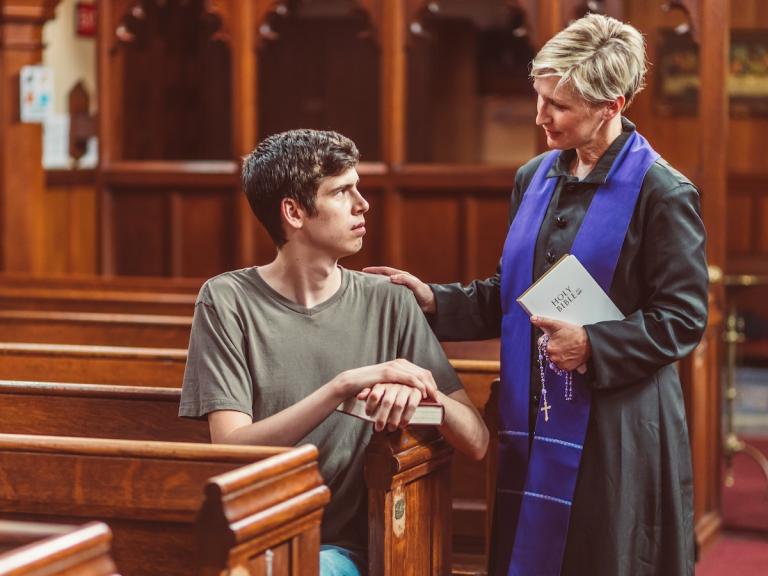
A recent study of friends and families of ICU patients found that hospital chaplains provide superior spiritual care, leading to better psychological and spiritual care outcomes. According to Religion News Service, the Regenstrief Institute and Indiana University School of Medicine conducted the study.
The study’s leader, Dr. Alexia Torke, said, “We wanted to improve the well-being of ICU family members because there’s so much distress that they face, and we were one of the few studies that have been able to do that successfully.” The study looked at ICUs at medical centers in Indiana from August 2018 to November 2021. Participants included substitute decision-makers whose loved ones in the ICU couldn’t make medical decisions.
According to Torke, the study found that those who met with hospital chaplains were “less likely to have anxiety and spiritual distress than those in the control group.” Paul Galchutt, a research chaplain at the University of Minnesota Medical Center, told Religion News Service that the study affirmed him. He compared the survey to a V8 engine for the work chaplains do.
The control group received the usual care from the medical center’s chaplains on staff. The intervention group received intensive spiritual care from outside chaplains, with an average of four visits during their loved ones’ stays. In contrast, the control group only saw a chaplain two times on average. Intervention group chaplains used a spiritual care assessment tool to connect with decision-makers.
Indiana University Health research chaplain Shelley Varner Perez said, “It really led me to ask questions that I might have sort of skipped over other times or might have put on sort of the back burner for another conversation or a follow-up visit.” Perez was also one of the chaplains involved in the study. “I think that really helped me learn about things that were important I might have missed in my usual practice.” Torke said the study provides information that chaplains are more than just people that provide prayer.
“People have this stereotype that they come for Christian prayer and at the end of life,” Torke said. “They do those things, absolutely, but the chaplains are trained to care for people of any religion and people of no religion. And that’s because the chaplains define spirituality broadly, to include those questions of meaning, purpose, transcendence and relationships that are universal.”
Chaplains provide an essential service for ICU patients and their loved ones. Now, there’s a study that backs up that information. Some people may be hesitant to talk to a chaplain, but hopefully, this study helps them step out of their comfort zone and relieve their burdens.


